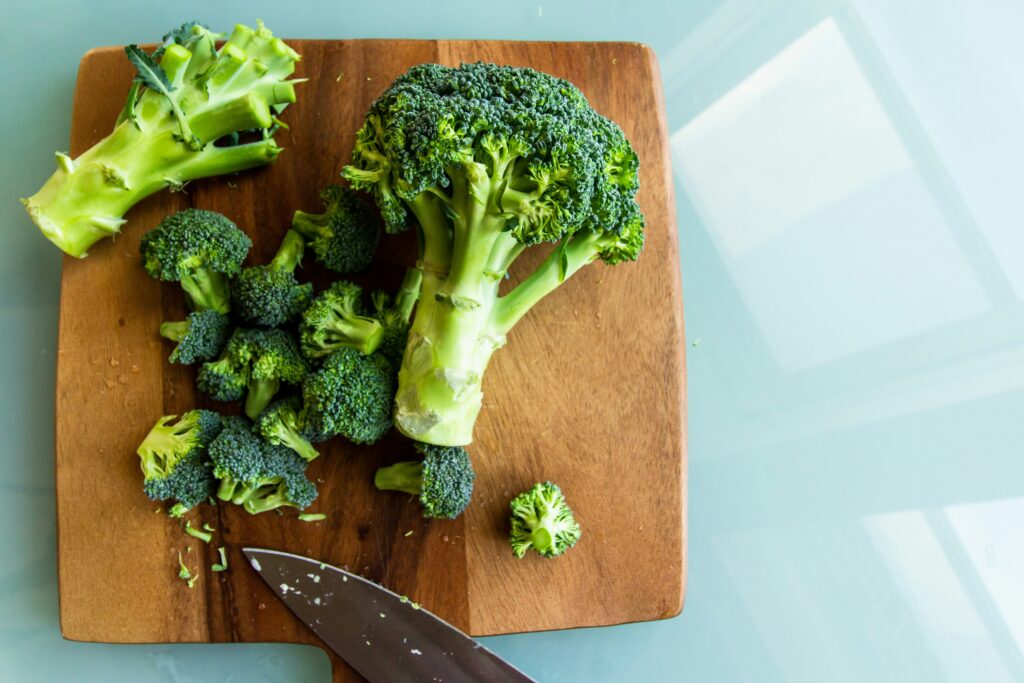
Meno Weight Loss – Shed The Weight (And Keep It Off!)
Meno weight loss is a topic that haunts so many women because it brings with it a challenge to get to a finish line. The first thing to note is that weight gain is a super common symptom of menopause and perimenopause. It’s not always linked to your diet. If you’ve never had problems with weight up until now, know that you’re not alone.
In this post, we’ll look at the reality of meno weight loss. Why did weight gain happen in the first place? What makes it so challenging to lose weight in menopause? And, most importantly, how can you lose weight and keep it off?
Let’s get stuck in.
Last Updated:
What causes menopause weight gain?
In studies, it has been documented that through perimenopause and menopause, women gain an average of 1 pound per year. However, that average can vary hugely, with 20% of the women monitored gaining 10+ pounds.
So, before we deep-dive into meno weight loss, we need to first understand why we’re gaining weight in the first place.
Hormone changes and weight gain
As is the case for so many menopause and perimenopause symptoms, our changing hormone levels play a huge role. As your oestrogen levels fall, your body looks for it elsewhere and finds a hormone that has been created by fat cells. This is called oestrone.
The most effective type of oestrogen is called oestradiol. Unfortunately, oestrone is less effective, and it also creates inflammation (another leading cause of perimenopause bloating.)
Many women in perimenopause and menopause have reported having a “spare tyre” which is often down to our bodies swapping oestradiol for oestrone. On top of this, women have more cravings for sweeter, sugary foods or foods full of unhealthy fats. All of this combined leads to weight gain that is hard to shift.
Aching joints, lack of exercise and weight gain
If you’ve been experiencing aching joints in perimenopause and menopause, you’re not alone. In fact, this is one of the core reasons why meno weight loss is so tricky (but more on this later!).
As your oestrogen and testosterone levels reduce, it’s common to feel muscle pain and aching joints. When you’re in pain, the last thing you want to do is exercise. Unfortunately, if you’re achy and sore for a significant period of time and you don’t get moving, the result is menopause weight gain.
Impaired sleep, hunger hormones and weight gain
Poor sleep quality is one of the most common menopause and perimenopause symptoms. This impaired sleep is caused by a number of factors but are mainly underpinned by falling oestrogen levels.
As your oestrogen levels decline, you may experience hot flashes and night sweats. These can wake you up and make it difficult to get back to sleep.
On top of this, hot flashes and night sweats will reduce the production of melatonin – the hormone used for sleep. In its place, a rush of cortisol – the stress hormone. Clearly, it is challenging to sleep when your body is under stress.
If you’re not sleeping properly, you are more likely to snack on foods that are high in sugar and saturated fats. This creates a viscous cycle, from sugar highs to energy crashes and disrupted sleep.
Sleep is also critical for two other hormones: leptin and ghrelin. While leptin is an appetite suppressant, ghrelin does the opposite and stimulates hunger. When you don’t sleep well, your body can produce more ghrelin, meaning you’re hungrier than usual. As it does this, your leptin levels decrease, stopping you from feeling satisfied and full. This, in turn, promotes weight gain.
Low testosterone and weight gain
When we talk about menopause and perimenopause, we often blame oestrogen levels. Oestrogen is a huge culprit. That said, falling testosterone levels can also be responsible for some symptoms, including weight gain.
As your testosterone levels decline, it’s common to see your muscle mass decrease and your energy levels dwindle. This is one of the main reasons why menopause fatigue is so common.
As this happens, your metabolic rate slows and fewer calories get burned, even if you’ve made no changes to your diet.
Low testosterone can also spark symptoms such as anxiety, depression, mood swings, low mood, lack of motivation, achy joints and muscles and poor sleep quality.
Is menopause weight gain risky?
It’s important to note that some weight gain is fine and expected. However, be aware that menopause weight gain can be dangerous. Additional weight – specifically around your tummy – can increase your risk of a range of health conditions, such as:
- Difficulty breathing
- Heart disease
- Type 2 diabetes
- Some types of cancer
- Breast
- Colon
- Endometrial
Why is meno weight loss so difficult?
Meno weight loss is even more challenging than standard weight loss. You’re working against hormonal changes that are out of your control, the stress that those hormone changes cause plus the symptoms they bring along with them and the natural aging process.
However, just because it’s difficult doesn’t mean it’s impossible. There are ways to lose weight and keep it off in perimenopause and menopause. It’s just about being consistent, tracking progress and discovering what works best for you to result in meno weight loss.
Meno weight loss – how to lose weight during menopause
As a menopause nutritionist, I can tell you that there isn’t one correct way for everyone for successful meno weight loss.
As with so many facets of perimenopause and menopause, every single body is unique, so the strategies put in place will vary from person to person.
That said, there are things you can do to kick start your meno weight loss journey. Just make sure you’re tracking your progress over time so that you can assess what is and what isn’t working for you.
1. Reduce the carbohydrates in your diet
While we all find comfort in carbohydrates, if you’re working towards sustainable meno weight loss, you should really consider reducing the amount of carbs you’re consuming.
That said, it’s important not to cut out carbohydrates altogether. With concepts like the “no carbs before Marbs,” out there, it can be damaging and cause further health problems. Cutting out carbs might work in the short term but this is simply not sustainable.
A study that took place in 2023 discovered that high quality carbohydrates can actually help with meno weight loss and be a far more long-term plan.
With this in mind, you should get your carbohydrate intake from foods like:
- Fruits and vegetables that aren’t full of starch, such as broccoli and carrots
- Whole grains
Prioritise healthy carbohydrates, reducing them but not eliminating them. You should limit your consumption of:
- Foods with added sugar
- Vegetables full of starch such as potatoes
- Refined grains

2. Eat fibre-full foods
Fibre is key for healthy digestion, which will aid with meno weight loss.
Fibre helps with weight loss by helping your body feel fuller for longer, therefore reducing your appetite. It also helps to regulate your blood sugar levels, which, when combined, leads to a lower calorie intake.
Fibre helps with bloating, lowering cholesterol and providing healthy gut bacteria, too.
Foods high in fibre include:
- Fruits
- Apples (skin-on)
- Berries (raspberries, strawberries, blueberries and blackberries)
- Pears
- Avocados
- Vegetables
- Sweet potatoes
- Broccoli
- Brussels sprouts
- Spinach
- Kale
- Cabbage
- Corn
- Potatoes (skin-on)
- Whole grains
- Brown rice
- Quinoa
- Whole-wheat bread
- Oats
- Legumes
- Kidney beans
- Chickpeas
- Lentils
- Split peas
- Black beans
- Nuts and seeds (which make great healthy savoury snacks, by the way!)
- Almonds
- Chia seeds
- Flaxseeds
- Pumpkin seeds
- Sunflower seeds
- Other foods such as
- Popcorn
- Granola
- Dark chocolate
- Whole grain cereals
- Peanut butter
3. Add more soya foods to your meal plan
Soya foods are great for meno weight loss due to its high quantities of protein and fibre. Combined, this helps your body feel satisfied and full, allowing you to lessen your calorie intake without feeling hungry. Soy products contain phytoestrogen, which mirrors the effects of oestrogen inside the body. When consuming soy products, the drastic drop of hormones isn’t as noticeable, which often leads to improved menopause symptoms in general.
On top of this, soy is low in saturated fat, which also helps with weight control.
Foods rich in soy include:
- Edamame beans
- High in protein
- High in fibre
- Contain no cholesterol
- Meat alternatives
- Tofu
- Soy protein burgers, sausages, bacon and hot dogs
- Usually cholesterol-free
- Lower in fat in comparison to meat
- Great source of protein, B vitamins and iron
- Miso
- High in sodium, so use sparingly
- Soymilk
- Excellent source of B vitamins and protein
- Does lack calcium and vitamin D, so keep this in mind
- Great supplement if you’re lactose intolerant
- Soy nuts
- Come in a variety of flavours to match your taste
- High in protein
- High in isoflavones to mirror oestrogen
- Tempeh
- Can be added to soups, stews, casseroles or marinated and grilled
- Tofu
- Great carrier of flavour
- Rich in protein
- Contains many B vitamins
- Low in sodium
4. Get moving more
While it can be tempting to avoid exercise when you’re navigating through perimenopause and menopause, it’s important to get moving.
Aching joints and muscle pain along with all the other symptoms you’re experiencing can act as a barrier. However, movement is necessary to sustain meno weight loss.
The best exercises for meno weight loss include:
- Resistance training
- As your muscle mass decreases, you can combat it with resistance training.
- Rids abdominal fat and strengthens muscle
- Cardio training
- No equipment necessary
- Helps to shed abdominal fat without the loss of muscle
- Combination training
- Merges resistance and cardio training
- The best exercise for meno weight loss and muscle retention
5. Reassess your portion sizes
Portion sizes and weight loss seem to be tied together. It’s not always the case that your portion sizes are too large, and it’s important to never skip a meal. However, it’s worth assessing the size of your plate. To lose weight, you may need to take in fewer calories.
That said, you shouldn’t skip out on needed nutrition. Pay more attention to what you’re eating rather than the portion size, focusing on fibre-full ingredients, vegetables, fruits and whole grains.
6. Prioritise and protect your sleep
As mentioned before, disrupted sleep is one of the leading causes of menopause weight gain. Protecting your sleep is important for all menopause symptoms, including successful meno weight loss.
If you don’t get enough sleep, your appetite increases and so do cravings for foods you know won’t help such as crisps, burgers and fizzy drinks.
When the tiredness does strike, though, and you’re craving something sweet to boost your energy levels, reach for foods that satisfy sweet cravings without harming your body.
To improve your sleep during menopause, try:
- Creating and sticking to a regular sleep schedule
- Go to bed at the same time every night and wake up at the same time every morning – even on weekends.
- Create a bedtime routine and stick with it
- Give yourself winding down time without electronic screens. Consider reading, listening to music, taking a bubble bath or meditating for an hour before bed.
- Make the most out of your sleeping environment
- Try to make sure your bedroom is cool, dark and comfortable. Keep the windows open for a few hours before going to bed and make sure it’s as dark as possible.
- Opt for breathable bedding. Instead of a heavy duvet, use thinner blankets. That way, if you have a hot flash you will be more comfortable
- Keep a fan on throughout the night, even in the winter
- Go to bed in loose-fitting, breathable clothing
- Don’t exercise for an hour before bed
- Don’t eat for an hour before bed
- Avoid spicy and sugary foods
- Avoid caffeine and alcohol

7. Drink plenty of water
Water is magical and it helps with – essentially – everything. This includes aiding with meno weight loss.
Not only will staying hydrated aid with bloating but it can also work in your favour when it comes to appetite. Drinking water before eating a meal can help you feel fuller faster. It also helps with your metabolism which will naturally drop as you age.
8. Work with a professional to create a direct roadmap to meno weight loss
Finally, consider working with a professional to create a unique plan for your meno weight loss journey.
The problem with existing and viral diets is that what works for one person might not work for another. Everyone’s bodies are different. On top of that, everyone’s tastes are different. It’s not fair to ask someone to cut their favourite foods out permanently. Life’s too short to not gain pleasure from our food!
Menopause Midsection Makeover, for example, takes your food preferences into account. On top of this, your plan is built based on your lab results. It’s impossible to know the steps needed for meno weight loss without having the science to help you get there.
Combining lab results with food preference, dietary restrictions and considering lifestyle factors and habits means you’ll have a step by step process to successful meno weight loss. When it’s all created for your body, being consistent and keeping the weight off becomes a lot easier.
Menopause weight gain – when to speak to a doctor
As is the case with any menopause symptom, you should always keep your doctor in the loop. Weight gain is such a typical side effect in perimenopause and menopause. It’s nothing to be ashamed of, and your doctor will be able to advise you.
If you are experiencing low self-esteem, a drastic drop in confidence or your mental health is suffering, please do book an appointment with your GP. Additionally, if your weight gain has been rapid or is contributing towards other health conditions, you should speak with your doctor.
Meno weight loss – in a nutshell
Meno weight loss is not easy. However, just because you’re perimenopausal or menopausal does not mean you’re doomed to put on weight that won’t shift. There are a number of strategies you can use to help with menopause weight gain.
Focusing on nutrition – making sure you’re eating the right foods that are high in fibre, isoflavones and reducing your carbohydrate intake – is the first step. On top of this, you should exercise routinely (even when you don’t want to), stay hydrated and prioritise your sleep.
Remember, a bespoke meno weight loss plan is always a great idea. Bringing together science from your lab results, your own food preferences and restrictions and your lifestyle and routines is a sure way to achieve meno weight loss and keep it off.
Head over here to learn more about Menopause Midsection Makeover and let’s get you feeling like you again.
Leave a Reply
- free ebook alert -
WHAT TO EXPECT WHEN YOU’RE
going through the menopause
Demystify your understanding of what’s happening to you. Arm yourself with solid, game-changing information to support you through this challenging phase of your life.
grab your copy now →
WHAT TO EXPECT WHEN YOU’RE
going through the menopause